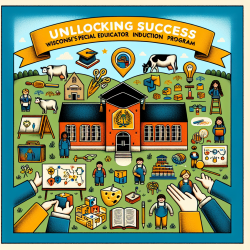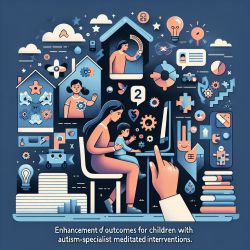As a special education director, ensuring the emotional and linguistic development of our students is a top priority. A recent study titled "Preliminary data on the development of emotion vocabulary in typically developing children (5–13 years) using an experimental psycholinguistic measure" sheds light on how we can improve our approach to fostering emotional intelligence in children. Here’s how you can implement the findings to enhance your practice.
Key Findings from the Study
The study utilized The Emotion Vocabulary: Expressive and Receptive ability measure (EVER), which includes tasks for both receptive and expressive vocabulary. The research revealed that children's accuracy in recognizing and generating emotion vocabulary improves with age, demonstrating the need for a standardized tool to assess emotional vocabulary across childhood.
Practical Applications for Practitioners
Here are some actionable steps you can take to incorporate these findings into your practice:
- Integrate Emotion Vocabulary in Daily Lessons: Use age-appropriate emotion words in daily interactions and encourage students to express their feelings using these terms.
- Use Visual Aids: Incorporate images that depict various emotions to help children associate words with facial expressions and body language.
- Interactive Activities: Engage students in activities like role-playing and storytelling to practice using emotion vocabulary in context.
- Parental Involvement: Encourage parents to use emotion vocabulary at home, reinforcing what is taught at school.
Encouraging Further Research
While the EVER Measure provides a solid foundation, further research is needed to refine these tools and expand their applicability. Encourage your colleagues and researchers in your network to explore this area further.
Conclusion
Implementing the findings from this study can significantly enhance the emotional and linguistic development of children. By integrating emotion vocabulary into your daily practices and encouraging further research, you can help create a more emotionally intelligent generation.
To read the original research paper, please follow this link: Preliminary data on the development of emotion vocabulary in typically developing children (5–13 years) using an experimental psycholinguistic measure.










